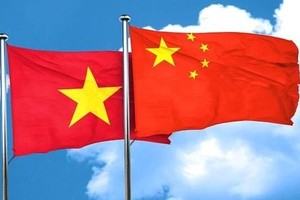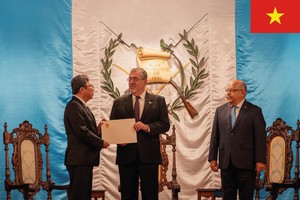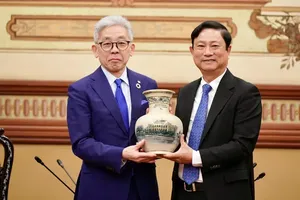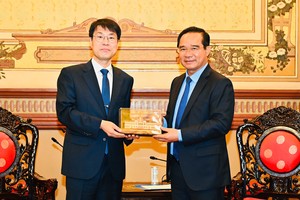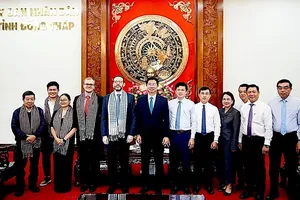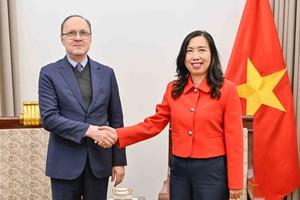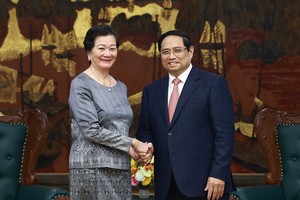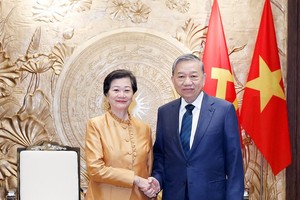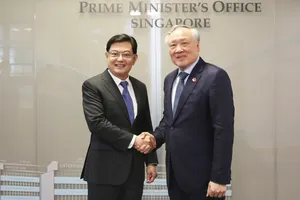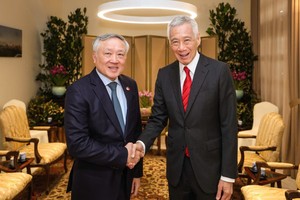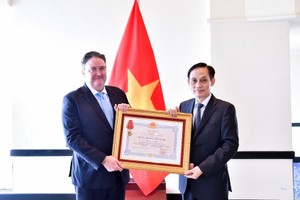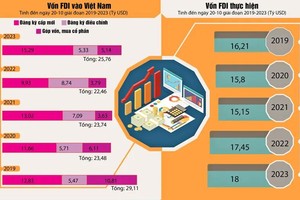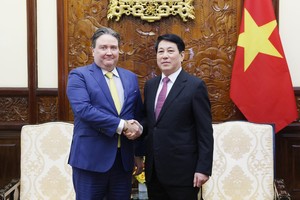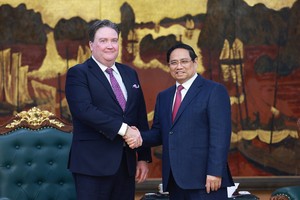Members of Congress on Tuesday threatened Beijing with duties on some of its exports if it fails to revalue its currency, pressuring the Obama administration to label China a currency manipulator.
A bipartisan bill introduced in the Senate merges previous legislative efforts to press China to change policies that critics say keep its yuan currency cheap, effectively subsidizing Chinese exports and taxing competing imports.
"When there's a 20 percent or 30 percent undervaluation that reduces the price of a product coming in, that's not fair. That's cheating," Democratic Senator Debbie Stabenow, a co-sponsor of the legislation, told a news conference.
"If they're not going to do it, we're going to force them," Republican Senator Sam Brownback added.
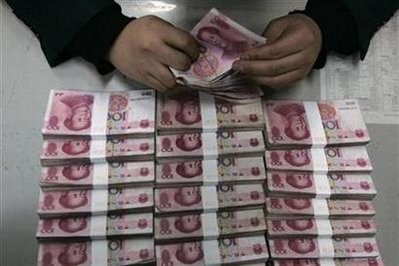
The bill, a rare show of bipartisan accord, reflects widespread concern about high U.S. unemployment. It follows two days after Chinese Premier Wen Jiabao dismissed U.S. complaints about China's exchange-rate policy as protectionist.
It also is likely to weigh on the Obama administration's deliberations whether to label China a currency manipulator in a semiannual Treasury Department report due on April 15. In the background is the realization that China is a major holder of U.S. debt.
Many U.S. lawmakers, with strong backing from economists, believe the yuan is undervalued by 25 percent to 50 percent, giving Chinese companies an unfair price advantage in trade --- a situation seen as more acute now that the U.S. economy is struggling to recover from the worst downturn since the 1930s.
Treasury Secretary Timothy Geithner, asked on Fox Business Television about the legislation, said it illustrated "how strong people feel about this, and it's understandable and it's true in countries around the world.
"I think ultimately they're going to decide over time it's in their interest to move to a more flexible exchange rate," Geithner added.
White House Spokesman Robert Gibbs said Obama "wished and hoped that China approached the currency using a more market-based interpretation."
A Treasury official added: "The rebound of China's economic growth and exports and their continued large-scale reserve accumulation indicate clearly that China should resume appreciation of the RMB."
However, Dan Ikenson, a trade policy analyst at the Cato Institute, said he feared the legislation could inflame relations with China without accomplishing the lawmakers' goal of reducing U.S. imports from that country.
He noted that when the yuan rose 21 percent in value between July 2005 and July 2008, the U.S. trade deficit with China actually increased from $202 billion to $268 billion.
Nick Bennenbroek, head of forex strategy at Wells Fargo in New York, called the lawmakers' move counterproductive.
"When China gets international pressure to adjust its currency policy, it seems to resist that pressure. It doesn't like to be pushed around," he said.
'REMEDIAL INTERVENTION' PROPOSED
The legislation was crafted by Senators Charles Schumer, a Democrat, and Lindsey Graham, a Republican. The two got 67 Senate votes in 2005 for a bill threatening to put a 27.5 percent tariff on all Chinese goods.
"This is a good coalition to make something happen in the Senate, and I hope our colleagues in the House will follow," said Graham.
Senate Majority Leader Harry Reid said the bill was "something that committees with jurisdiction should take a look at."
The bill would require the U.S. Treasury Department to identify countries with fundamentally misaligned currencies each September and March.
The proposed legislation would authorize the Commerce Department to include currency misalignment in its calculation of anti-dumping duties on specific products if a targeted country has not begun steps within 90 days to realign its currency.
It also requires the Department to investigate if currency manipulation is a subsidy that warrants additional "countervailing duties."
It ratchets up pressure by instructing the U.S. Trade Representative to initiate action at the World Trade Organization against any country that has not taken steps within 360 days to realign its currency.
The bill also would require the Treasury Department to consult with the Federal Reserve and other central banks to consider remedial intervention in currency markets if a targeted country has not acted after a year.
RISING ANGER
The 2005 bill was passed by the Senate, but Schumer and Graham eventually abandoned it when Beijing began making some movement toward revaluing the yuan.
China let its currency rise in value between July 2005 and July 2008. But since then, it remained at about 6.83 yuan to the dollar, and U.S. economists say productivity gains by China have negated any real currency appreciation.
Schumer and Graham's latest effort comes as President Barack Obama's administration is weighing whether to formally label China a currency manipulator.
On Monday, 130 members of Congress urged the Obama administration in a letter to label China a currency manipulator and take other steps to persuade Beijing to raise the value of its currency against the dollar.
Obama accused China of manipulating its currency for an unfair trade advantage during his 2008 election campaign.
But as president, he followed the course of his predecessor, George W. Bush, and has avoided applying the politically explosive term in two Treasury Department reports issued under his watch and in his public comments.
Last week in a speech on his administration's plans to boost exports, Obama urged China to move to a "more market-oriented exchange rate" -- words repeated by White House spokesman Gibbs on Tuesday when asked about Schumer's bill.
"The Bush administration never pulled the trigger because they were afraid of what China would do," said Graham, urging the Treasury to "speak the truth" and name China as a manipulator.
WHO NEEDS WHOM MORE?
Obama, like Bush, has struggled to address U.S. economic grievances with China without antagonizing Beijing and jeopardizing Chinese help in tackling global problems like climate change and nuclear proliferation in Iran and North Korea.
Equally important, China has also plowed its export earnings into purchases of U.S. debt, helping keep American interest rates low.
Times have changed now, say lawmakers and some economists.
"They need the U.S. market more than we need anything about China," said Schumer.
Unlike several years ago, "we are not now in a world in which capital inflows from China lead to lower interest rates," Economics Nobel Laureate Paul Krugman said last week. "Chinese surpluses come at the expense of jobs and employment elsewhere in the world," he added.
With China seen buying some $1 billion in dollars each day to keep the yuan stable, few U.S. economists dispute that China is manipulating its currency. But not all agree on what the remedy should be.
